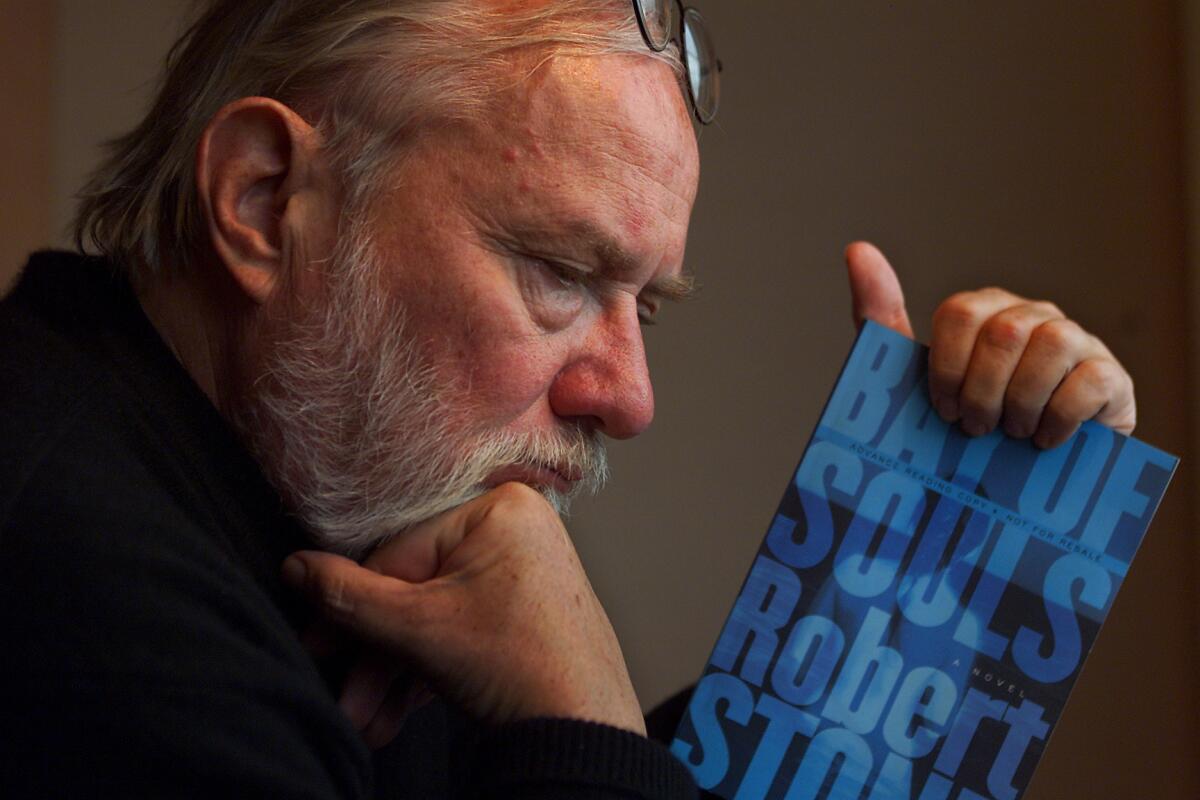Author Robert Stone has died at 77

Writer Robert Stone’s novel “Dog Soldiers” was awarded the National Book Award in 1975; he was a finalist for the prize three more times, for “A Flag for Sunrise,” “Outerbridge Reach” and “Damascus Gate.” He died Jan. 10 at 77.
National Book Award-winning Robert Stone died Saturday at age 77 at his home in Key West, Fla. His agent told the Associated Press the cause was chronic obstructive pulmonary disease.
Stone was best known for his novel “Dog Soldiers,” which was awarded the 1975 National Book Award. Set partly in Vietnam and partly in California, “Dog Soldiers” is “a ruthless diagnosis of the Vietnamization of the homeland,” Jonathan Lethem wrote, calling it “a great American masterpiece.”
Stone went to Vietnam as a correspondent in 1971. “I was there less than two months, but every day was different. It was the kind of place where anything could have happened,” he told the Paris Review. “There’s nothing that couldn’t have happened there.”
Born in Brooklyn in 1937, Stone was raised by a single mother and, when she was incapable, spent several years in an orphanage. He joined the Navy in the 1950s and after his release returned to New York, where he spent a year at New York University, wrote for the Daily News and spent many nights amid the Beat Scene in Greenwich Village.
He was awarded Stanford’s Stegner writing fellowship and moved to California in 1962. There he lived near Ken Kesey, who had not yet written “One Flew Over the Cuckoo’s Nest.” The two budding writers became friends.
Stone published his first novel, “A Hall of Mirrors,” in 1967; it was made into the 1970 film “WUSA” starring Paul Newman. “Dog Soldiers” was adapted into the 1978 film “Who’ll Stop the Rain.” Stone worked on both screenplays and went on to satirize Hollywood in his 1986 novel “Children of Light.”
He was a finalist for the National Book Award three more times: in 1982 for “A Flag for Sunrise,” in 1992 for “Outerbridge Reach” and in 1998 for “Damascus Gate.” He wrote a memoir, 2007’s “Prime Green: Remembering the Sixties.” His most recent novel was “Death of the Black-Haired Girl,” published in 2013.
“What I’m always trying to do is define that process in American life that puts people in a state of anomie, of frustration,” Stone told the Paris Review. “The national promise is so great that a tremendous bitterness is evoked by its elusiveness.”
Book news and more; I’m @paperhaus on Twitter
More to Read
Sign up for our Book Club newsletter
Get the latest news, events and more from the Los Angeles Times Book Club, and help us get L.A. reading and talking.
You may occasionally receive promotional content from the Los Angeles Times.







